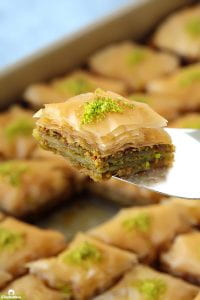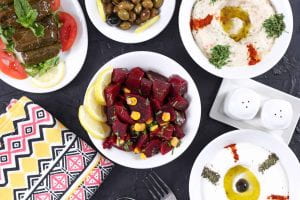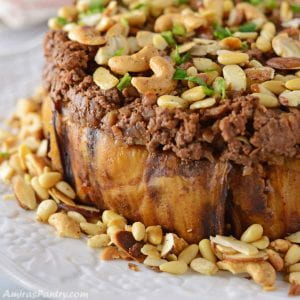My Chosen Skill:
I have chosen to learn Iraqi cuisine as my skill. I will be learning how to make traditional Iraqi dishes, an appetizer, main and dessert. Along with this I’ll be learning and perfecting some culinary skills, such as different knife techniques and alike.

Why Have I Chosen To Learn This Skill?:
I chose to learn this skill because I was always fascinated by the cuisine of other cultures. Living in Canada, somewhere where there is lots of exposure to other cultures and cuisines, I only became more interested in learning more about different food preparation.
When?
Over the weekends from now until the end of the project (May) I will be testing out the recipes. I will be spending February working on all the dishes, finding out which one I need to work on the most, which takes the most time to make, etc. In March I will mainly focus on perfecting the appetizer, April on the main and May on the dessert. If/when I have extra time during any of these months to work on a recipe that I wasn’t focusing on that month, I’ll do that to. With focusing on one dish a month and having a plan for time management, it makes it more likely that I’ll be able to perfect them all by the end of the project.
Also over the weekends I will be meeting with my mentor to make the dishes with her or under her supervision, so that she can point out things I’m doing well in the recreation of the dishes and/or things I need to work on more. When I’m not with her I will be sending her photos of the dishes I make alone so that she can see my progress.

Goals:
My main goal for this project is that I will be able to make these dishes with some level of expertise. Ideally I will be able to recreate all these dishes alone and with proper organization and speed, taste and presentation.
The challenge I have in place for myself will be to make the dishes almost exactly like my mentor does. I want to perfect them all, and I want to make her proud by making them with some skill.
Questions I Have:
The main question I have is how Iraqi dishes differ from the cuisine I’m used to (being Indian, Western, etc.) I also want to know how these differences between cuisine change the dishes, be it in the taste, in the process of making it, or if it’s merely in the presentation. I want to know the impact culture has on cuisine.
Plan and Process:
The way I’ll be showing my knowledge and advancement in this skill will be by making the food. Therefore my plan is to meet with my mentor and make the dish(es), and then return home and recreate it. Then I will compare them, and after some time, I will make the dish alone again. This will test not only my ability to make the dish alone, but will also test my memorization and familiarity of the process of making the dish.
As with all cooking, there is a fair share of things that can go wrong. Overcooking, undercooking, wrong measurements, incorrect ingredients, etc. However, with a thorough plan and a fully understood recipe, I think I’ll be able to make these dishes with a feeling of pride in the end.
Hopefully there will be improvement clearly seen between all the dishes I make, so that at the end of my project I will be able to claim to have a knowledge of Iraqi cuisine. Through photos of the dishes I recreate made into a presentation, I will be able to see how I’ve progressed throughout the project.

My Mentor:
My mentor is a close family friend from Iraq, who has been cooking the dishes I will be learning as family traditions. Having made these dishes many times throughout her life, she was happy and ready to pass on her knowledge to me. We will be meeting as much as possible to make the dishes, and she will also help me create a rubric that I can use to judge my dishes. This way we will be able to see how much I’ve improved from the beginning of the project to the end.
“Food for us comes from our relatives, whether they have wings or fins or roots. That is how we consider food. Food has a culture. It has a history. It has a story. It has relationships.” – Winona LaDuke